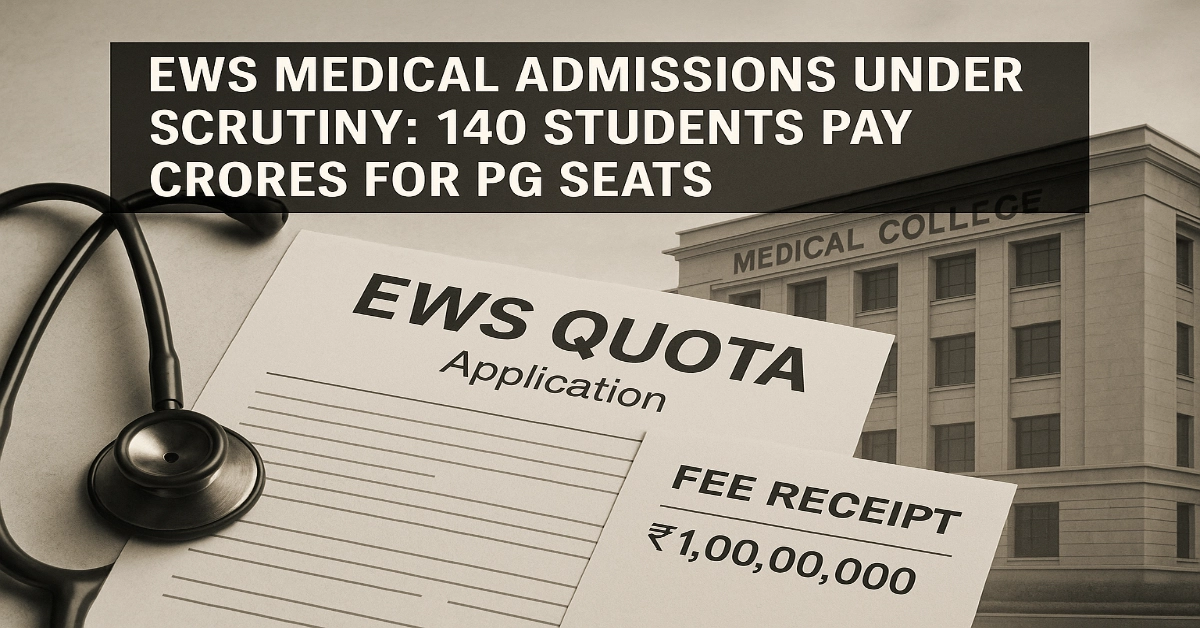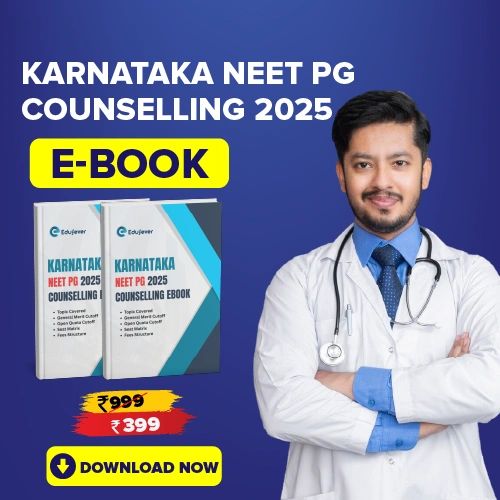A recent development in India’s postgraduate medical admission process has sparked concern and debate. Nearly 140 candidates who registered under the Economically Weaker Section (EWS) quota have secured seats in private medical colleges while paying fees ranging from ₹25 lakh to more than ₹1 crore per year. This situation appears contradictory to the foundational purpose of the EWS category, which was established to support financially disadvantaged students from the general category.
What the EWS Category Represents
The EWS quota is intended for students whose family income is below ₹8 lakh per year and who do not possess excess property or land as defined by government criteria. The intent behind this reservation is to ensure that deserving but financially weaker students receive fair access to higher education.
However, when students categorised as economically weak are able to afford tuition fees running into crores, it creates doubt about whether financial declarations are accurate, transparent, or properly verified.
The System & Reservation Misuse
The ability of certain EWS candidates to pay extremely high private medical fees has led many to question the authenticity of issued certificates.
Many genuine EWS students cannot even consider private medical education due to its cost, let alone pursue clinical specialties such as radiology, dermatology or orthopaedics, which are priced at the highest level.
When financially capable individuals use reservation benefits meant for lower-income students, the trust and purpose of the system weaken significantly.
The Role of Private Medical Institutions
Private medical colleges follow a different fee model compared to government institutions.
While government seats remain regulated and comparatively affordable, private medical colleges offer several admission routes such as management quota and NRI quota, which allow colleges to charge significantly higher fees.
| NEET PG Counselling Guide 2025 | |
|---|---|
| MCC NEET PG Counselling Guide eBook 2025 | 📥 Download |
| DNB Counselling Book 2025 | 📥 Download |
Because some EWS-tagged candidates have taken admission under these expensive categories, the boundary between reservation-based admissions and self-financed high-cost seats has become unclear.
Lack of Fee Regulation and Transparency
One of the biggest challenges exposed by this case is the absence of strict and uniform fee regulation across private medical education. Regulatory bodies provide frameworks, but enforcement varies by state and institution.
This inconsistency creates space for admissions that appear financially incompatible with the EWS status.
Reasons Behind the Trend
Some believe candidates may be claiming EWS benefits only to gain a counseling advantage and later opting for private seats because they can afford the fees.
Others suggest students may prefer high-demand specialties that are rarely available in affordable government institutions. The imbalance between available seats and rising demand in postgraduate medical education may also be pushing aspirants toward costly alternatives.
The Need for Verification and Reform
This situation highlights the urgent need for stronger verification processes for EWS certification. Cross-checking income tax filings, property ownership, and financial transactions may help prevent manipulation.
Greater transparency in seat allocation, pricing and quota structure across institutions can also reduce ambiguity. Additionally, scholarships, subsidized loan programs and centralized compliance monitoring could support genuine EWS candidates more effectively.
A Larger Question About Equity
This case raises a larger ethical question about whether India’s medical admission system is meeting its equity goals.
When students who can afford crores in tuition occupy EWS seats, the core purpose of the reservation policy, inclusion, support and fairness, becomes diluted.
Public trust in medical education and reservation frameworks depends on integrity, clarity and accountability.
The admission of nearly 140 EWS-category candidates into high-fee PG medical seats has exposed gaps in verification, regulation and policy execution. Ensuring that the EWS quota benefits those who genuinely need it requires stronger monitoring, financial transparency, and policy enforcement. Without NMC’s strong action, both equity and trust in India’s medical education system may continue to decline.

